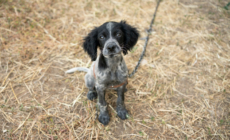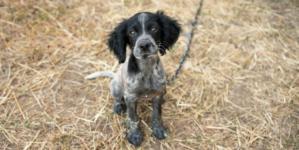-
As Truth Social Business Struggles, Trump Media Goes Big on Crypto - 17 mins ago
-
Yankees Reportedly Interested In Pirates Gold Glover After Jazz Chisholm Move - 28 mins ago
-
L.A. on pace to see lowest homicide total in nearly 60 years as killings plummet - 36 mins ago
-
How the Women of ‘Too Much’ Made Lena Dunham’s Rom-Com Just Right - about 1 hour ago
-
Dog Arrives at Shelter After Two Years of Cruelty, No One Prepared - about 1 hour ago
-
Baby dies after SoCal mom leaves him in hot car to get lip filler, police say - about 1 hour ago
-
Steelers’ Aaron Rodgers Faces Harsh Doubt From Former Coach - 2 hours ago
-
How Crypto Lobbying Won Over Trump - 2 hours ago
-
California farmers say Medicaid recipients, automation can’t replace immigrant workers - 2 hours ago
-
Tigers Reportedly Inquire About Former Gold Glove Third Baseman As Interest Grows - 2 hours ago
Japan Changes Rules On Baby Names
Japan has introduced new rules on the names parents can give their children with restrictions on the pronunciation of kanji characters—Chinese‐derived characters written in Japanese.
The Context
Since the 1980s, some parents have given their children names using kanji characters in such a way that creates a unique pronunciation.
This has left schools, hospitals and local offices with registers full of names that nobody knew how to pronounce, according to Hong Kong’s daily English language newspaper, the South China Morning Post (SCMP).
Critics argue that the rules prohibit linguistic evolution and self-expression.
What To Know
The changes enforcing these officially recognized ways to pronounce each kanji character came into effect with revisions to the Family Register Act on Monday.
Standardizing the pronunciation of kanji characters is designed to make administrative procedures easier, the Japanese government says. The way a character is pronounced must be “generally accepted as a reading.”
Local authorities will have the power to refuse to accept a name, especially if a particular reading could be considered “antisocial” or have “a negative impact on a child’s future.”
Names that have been criticized include Pikachu, from Pokémon, Naiki (Nike) and Pū (as in Winnie-the-Pooh), The Guardian reports.
Denmark is another country with strict name laws, with parents there only allowed to pick from an official list of 7,000 approved names, according to WordAtlas.
Approved names clearly indicate the child’s gender and must conform to Danish orthography. The rules are supposed to protect children from potential ridicule.
Other countries have banned specific names considered offensive, such as Germany’s ban on the name Lucifer, according to The Times.
In the United States, illegal names include Jesus Christ, Adolf Hitler, Santa Claus, Messiah, King, and Queen, according to U.S. Birth Certificates.

AP
What People Are Saying
Yuji Ogihara, assistant professor at Tokyo University of Science, wrote in a paper published in Current Research in Ecological and Social Psychology that there has been a rise in unique names for babies in the last few decades.
This “suggests a rise in uniqueness-seeking and individualism,” Ogihara said.
What Happens Next
With the new restrictions in place as of Monday, it remains to be seen how the public will react and whether there will be backlash from parents who want more control over their children’s name pronunciation.
It remains to be seen whether the intended outcome will be achieved and administration across the country will become easier.
Source link



















